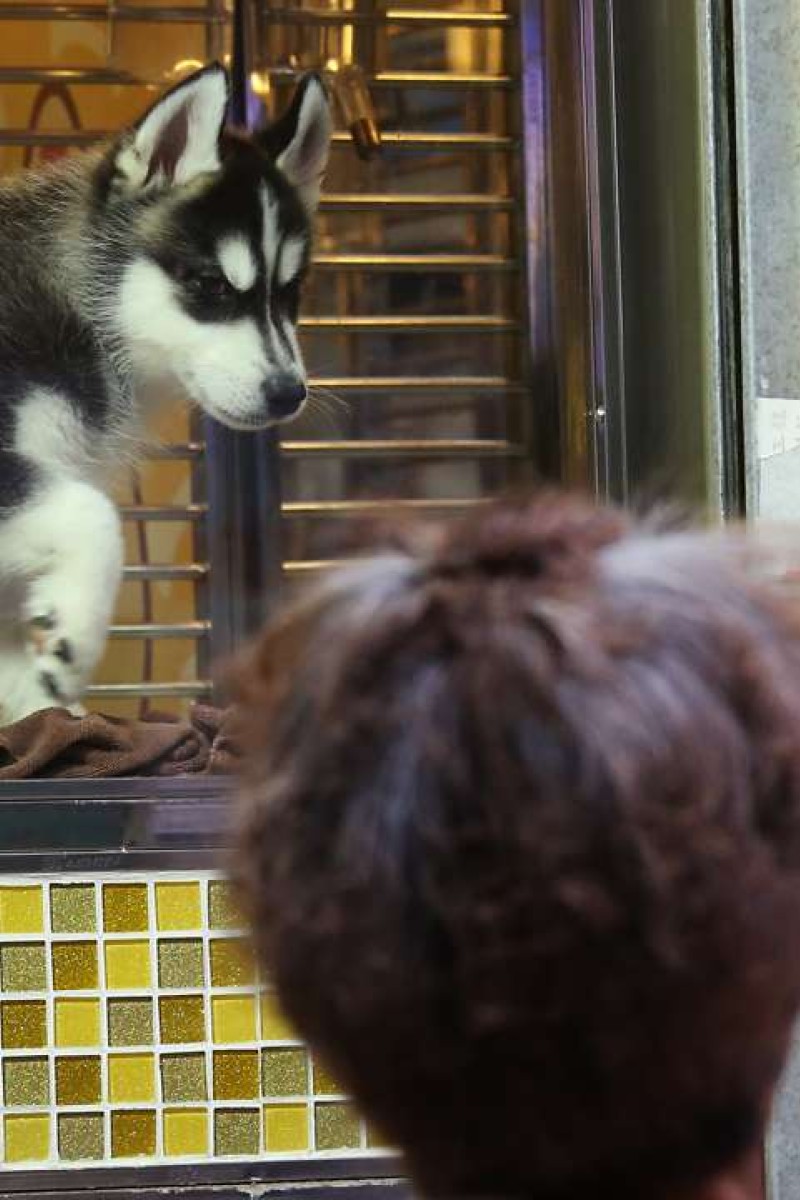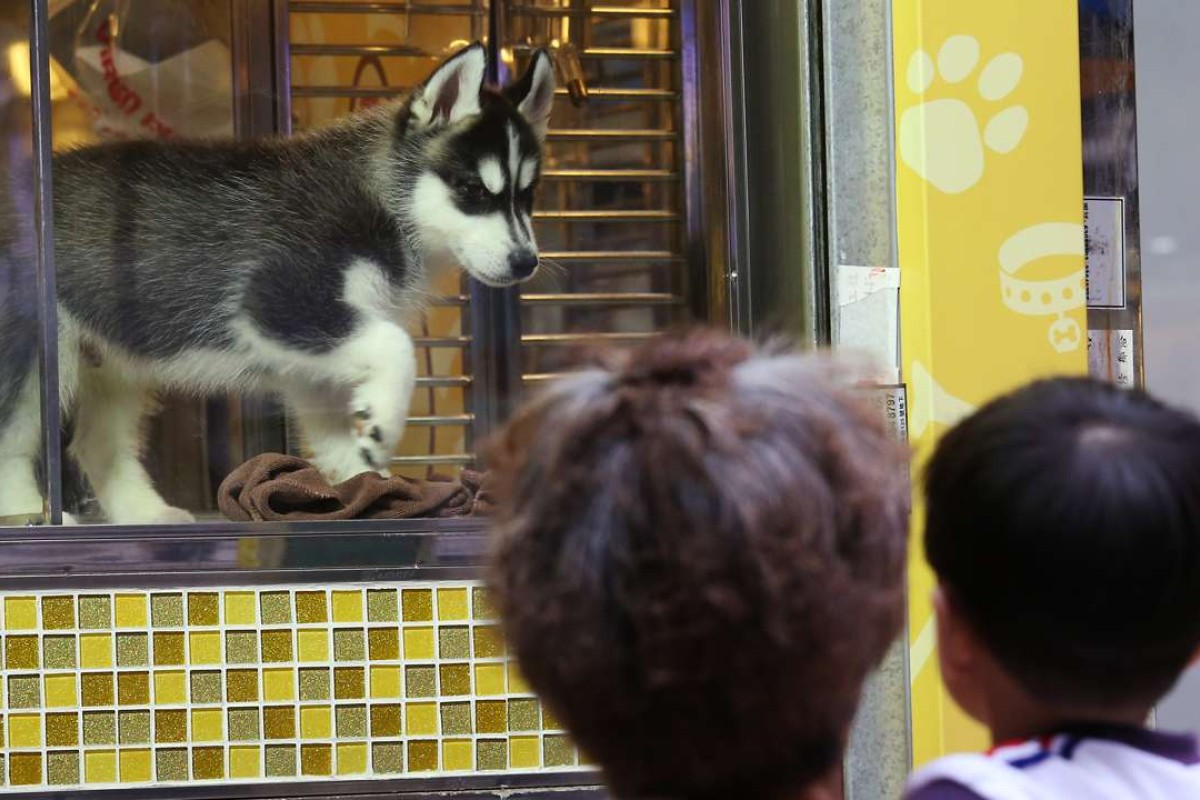
Some people are worried that the new regulations have been written too quickly, and as a result they will be difficult to enforce
 Breeders who supply animals to pet shops will have to apply for licences.
Breeders who supply animals to pet shops will have to apply for licences. Next month, Hong Kong will have new laws that tighten controls on breeding and selling dogs and other animals. But while it sounds like a victory for animal rights activists, some worry that the law has not been thought through, and so it will be difficult to enforce it.
In the past, dog breeders who claimed to be “pet owners” could get away with breeding and selling as many dogs as they liked. Some of them kept more than 100 animals. Under the new law, which comes into effect on March 20, anyone who sells a dog must have a permit, and no one can sell a dog to someone under the age of 16.
People who sell dogs or other animals have to apply for an animal trader licence, and breeders must get a dog breeder licence whether operating at home or elsewhere. The kind of licence breeders need will depend on the number of female dogs they own. The penalty for breeding or selling dogs without a licence will increase from a fine of HK$2,000 to HK$100,000.
Organisations which look after and try to rehome stray dogs on a non-profit basis will not have to be licensed.
Cheung Yuen-man of NGO Animal Earth said the new regime lacked an effective monitoring system to ensure traders complied with licensing conditions on such issues as the space allocated to animals and the daily activities provided to them.
“The whole thing is too rushed. The government should get hold of more information, such as the number of amateur dog breeders and their animals’ living environment, before implementing the new regulations. These breeders may not have the professional knowledge to take care of dogs,” she said.
“Before granting a licence, the government should check the lease conditions of the applicant’s premises to see if there are any restrictions imposed on dog breeding. Disputes with neighbours may arise if their premises are not suitable for breeding dogs.”